22 Delicious Fermented Foods That Boost Gut Health Instantly
Fermented foods have been a nutritional cornerstone in cultures worldwide for centuries, prized not only for their bold flavors but also for their remarkable health benefits. The magic of fermentation lies in the transformation—where beneficial bacteria break down sugars and starches, creating probiotic-rich foods that support digestion, immunity, and even mental health. As gut health continues to take center stage in overall well-being, incorporating these foods into your diet is one of the easiest and most effective ways to restore balance, reduce inflammation, and enhance nutrient absorption. We've expanded our list from 12 to 22 powerhouse fermented foods, ensuring you have even more options to cultivate a thriving gut microbiome. Whether you're new to fermented foods or looking to diversify your probiotic intake, this comprehensive guide will introduce you to the most potent options for optimizing digestion and boosting overall health. Get ready to nourish your body from the inside out!
1. Kimchi: The Spicy Probiotic Powerhouse
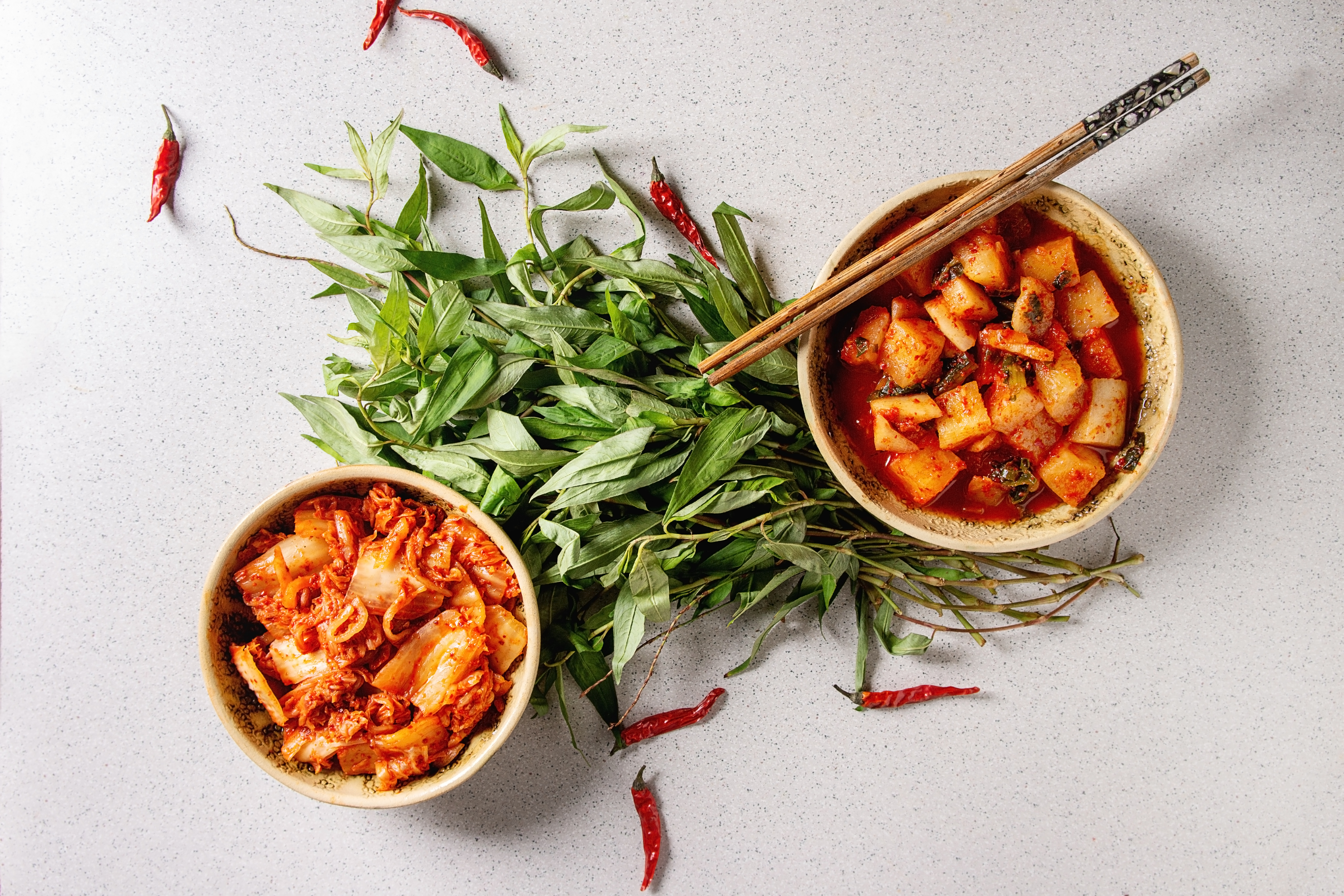
Kimchi is a traditional Korean fermented cabbage dish loaded with lactobacillus bacteria, the same beneficial microbes found in many probiotic supplements. Beyond just being a probiotic powerhouse, kimchi contains garlic, ginger, and chili peppers, which have antimicrobial and anti-inflammatory properties that support gut health. Studies have shown that kimchi can help reduce bloating, support digestion, and enhance immune function. The fermentation process also increases the bioavailability of nutrients, making it even more beneficial. Add a spoonful of kimchi to rice bowls, sandwiches, or eggs for a tangy, gut-friendly boost.
2. Sauerkraut: The Gut-Friendly Classic
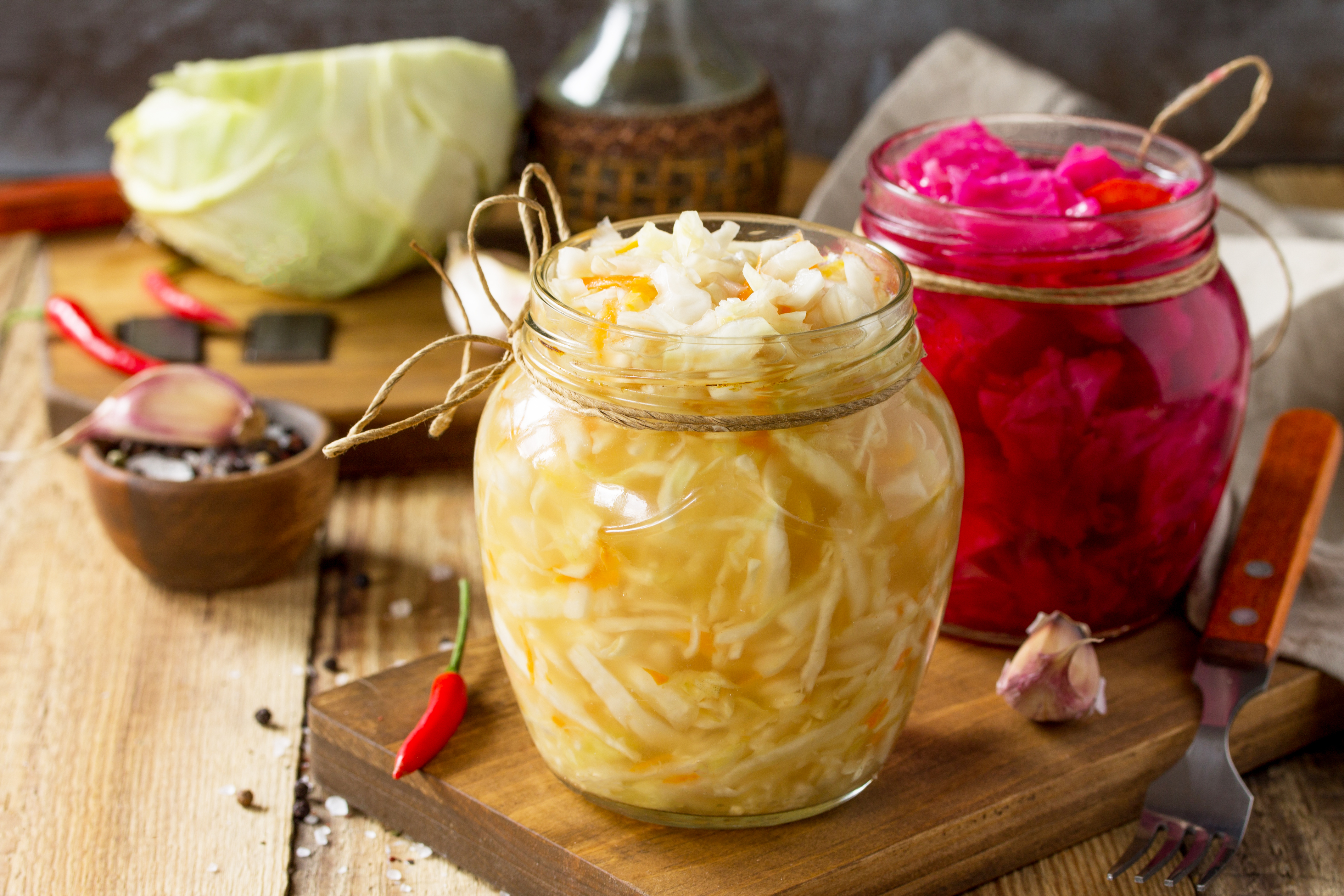
Sauerkraut, the European counterpart to kimchi, is made by fermenting cabbage in salt, allowing natural bacteria to thrive. This process produces live cultures of lactobacilli, which aid in digestion and help balance gut bacteria. Unlike store-bought versions that are often pasteurized (killing off probiotics), raw, unpasteurized sauerkraut is packed with live enzymes and beneficial microbes. Consuming a small portion daily can improve digestion, enhance nutrient absorption, and reduce gut inflammation. Add it to sandwiches, salads, or eat it straight from the jar.
3. Kefir: The Ultimate Gut-Healing Drink
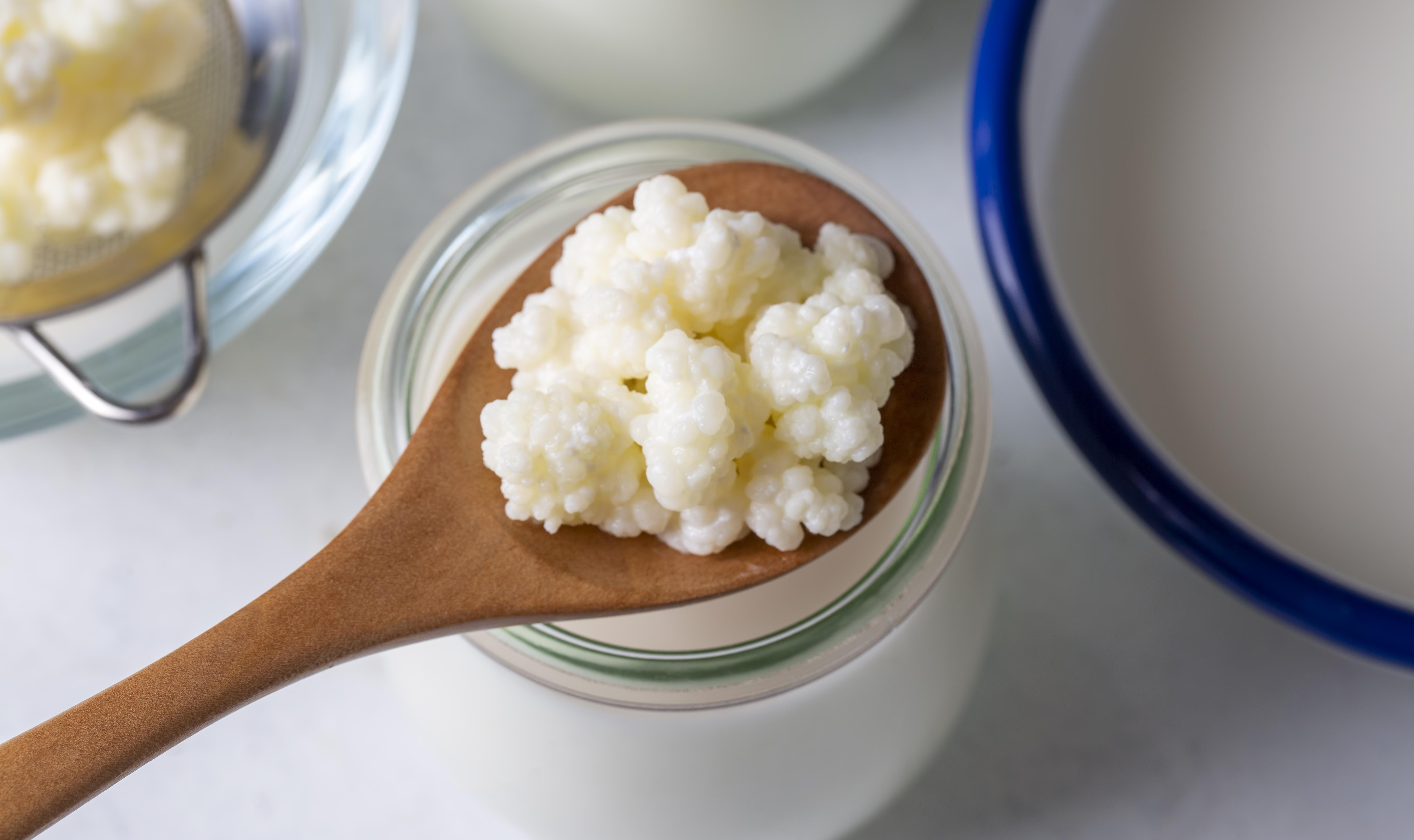
Kefir is a tangy, probiotic-rich drink similar to yogurt but with a thinner consistency and a much higher concentration of beneficial bacteria. Made by fermenting milk with kefir grains, it contains up to 30 strains of probiotics, making it one of the most diverse sources of gut-friendly microbes. Unlike regular dairy, kefir is often well-tolerated by those with lactose intolerance because the fermentation process breaks down much of the lactose. Drinking kefir regularly can improve digestion, support immune function, and even boost mood due to its effect on the gut-brain connection.
4. Miso: The Japanese Superfood for Digestion
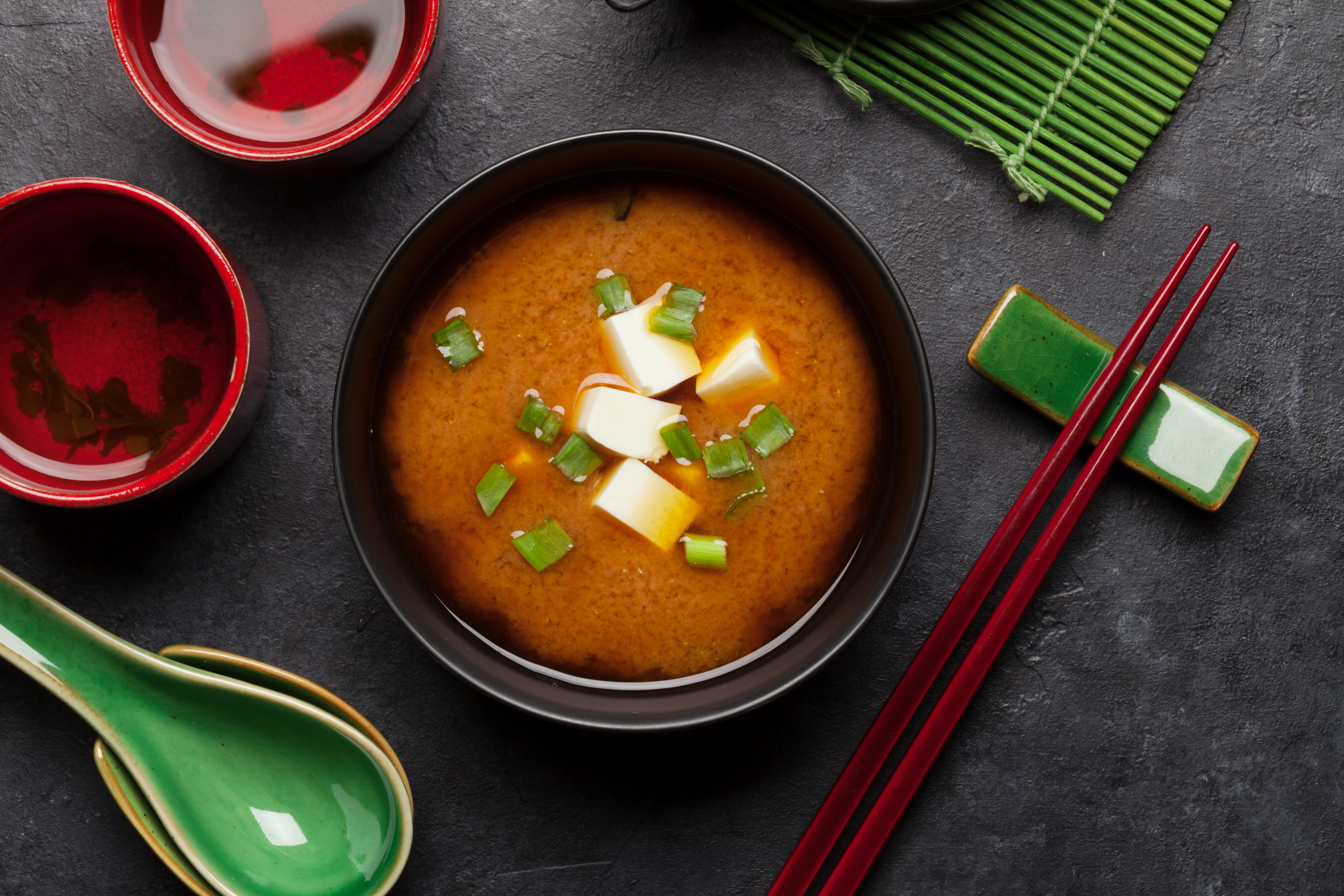
Miso is a fermented soybean paste commonly used in Japanese cuisine. It’s packed with probiotics, enzymes, and essential amino acids, making it a gut-friendly staple. Because miso fermentation often involves koji mold, it also contains powerful antioxidants and anti-inflammatory compounds. Drinking miso soup regularly can promote healthy digestion, reduce bloating, and support immune function. The key is to avoid boiling miso, as high heat can kill the beneficial bacteria. Instead, stir it into warm (not hot) water to preserve its gut-healing properties.
5. Tempeh: The Protein-Rich Gut Booster
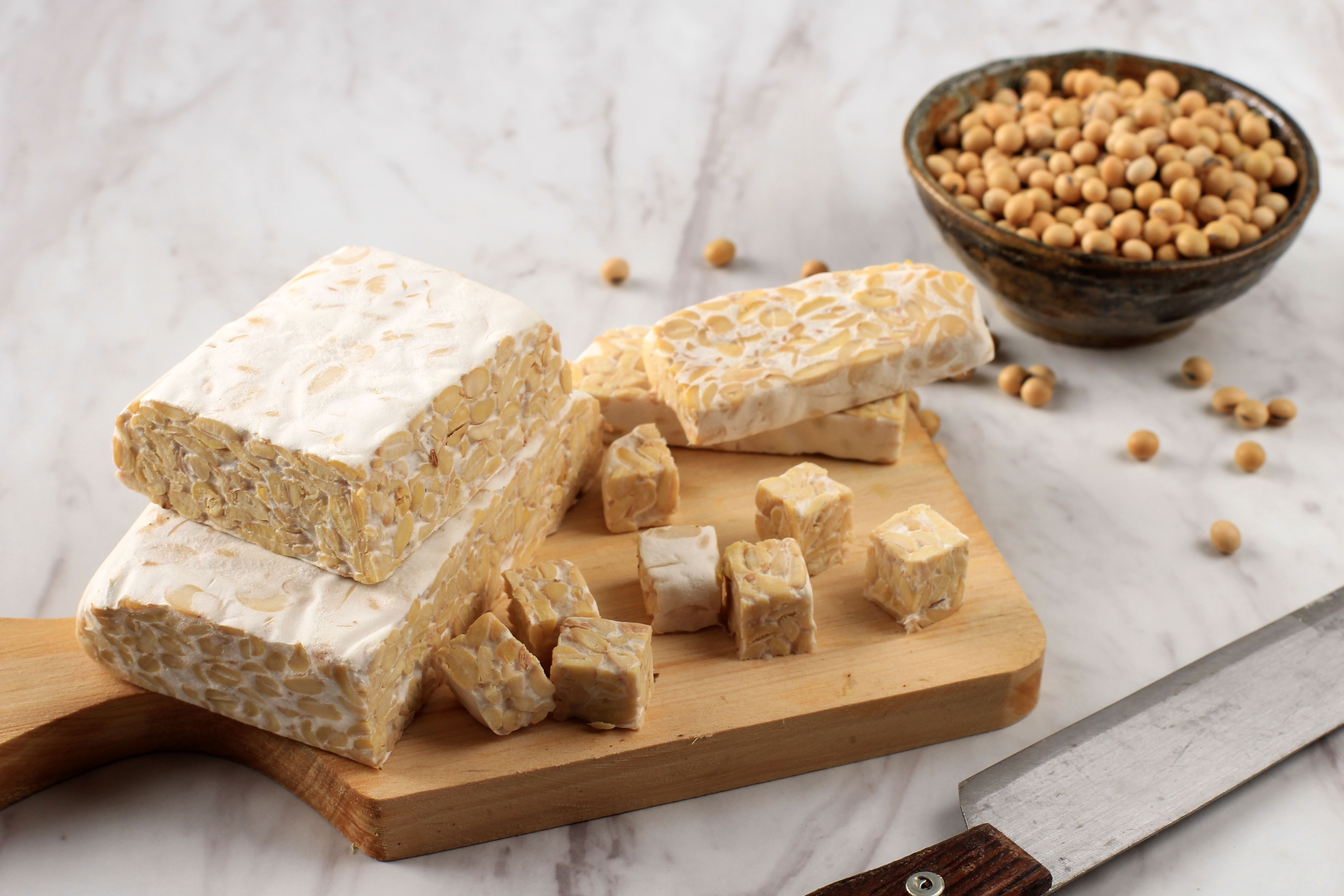
Tempeh is a fermented soybean product that is not only packed with probiotics but also serves as an excellent plant-based protein source. Unlike tofu, which is processed, tempeh undergoes natural fermentation that enhances its nutrient profile and makes it easier to digest. Because fermentation reduces the phytic acid in soybeans, tempeh also improves the absorption of minerals like iron, zinc, and calcium. Its firm, meaty texture makes it a great addition to stir-fries, grain bowls, or sandwiches.
6. Natto: The Fermented Superfood for Gut & Heart Health
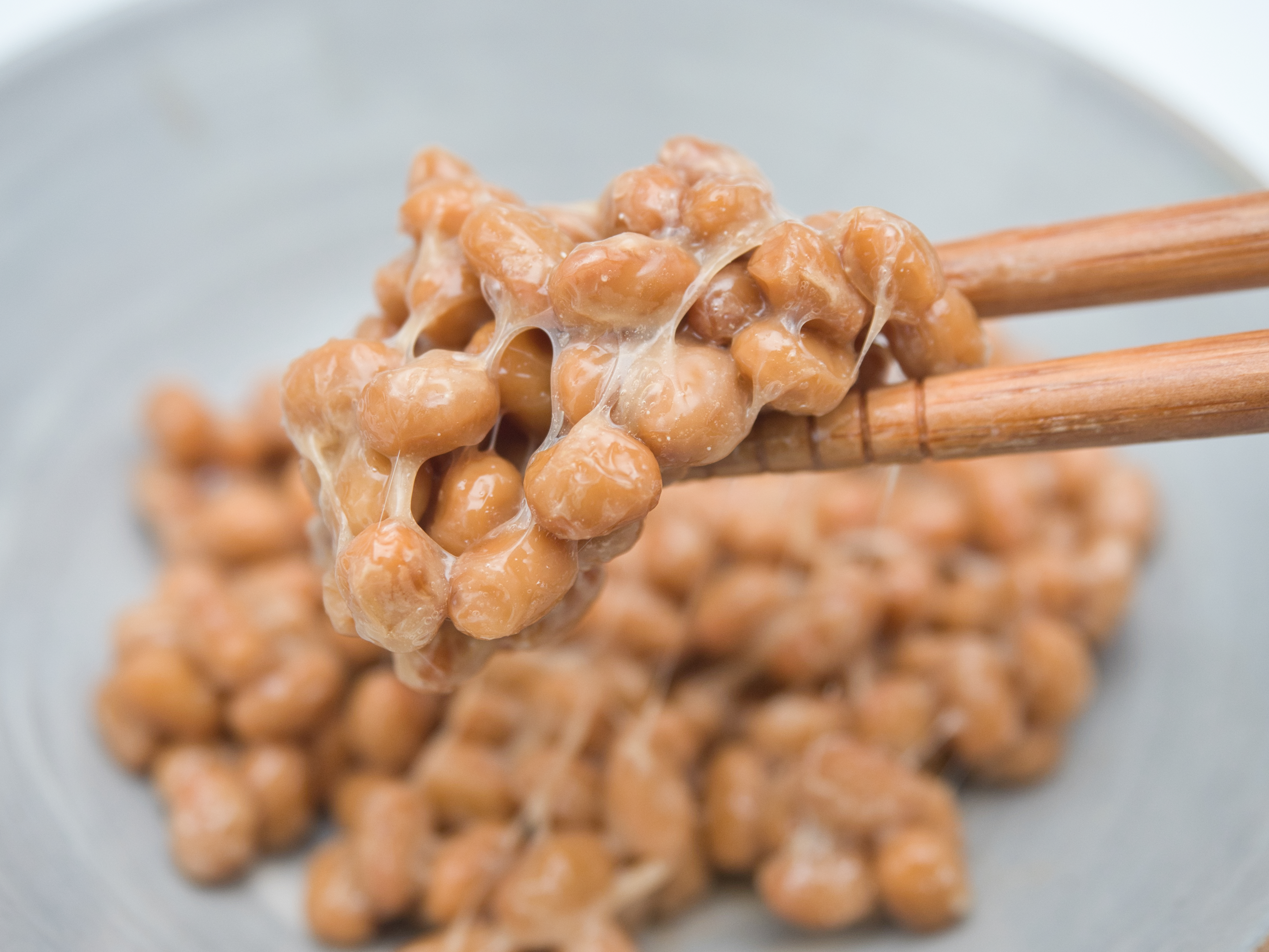
Natto is another fermented soybean dish popular in Japan, but it’s quite different from tempeh. It has a sticky, stringy texture and a strong, pungent smell, but its gut-healing benefits are worth the acquired taste. Rich in Bacillus subtilis, a powerful probiotic strain, natto supports digestion, reduces inflammation, and enhances nutrient absorption. It’s also one of the best sources of vitamin K2, which plays a crucial role in heart and bone health. While its texture may take some getting used to, adding natto to rice dishes or mixing it with mustard and soy sauce can make it more palatable.
7. Kombucha: The Effervescent Gut Cleanser
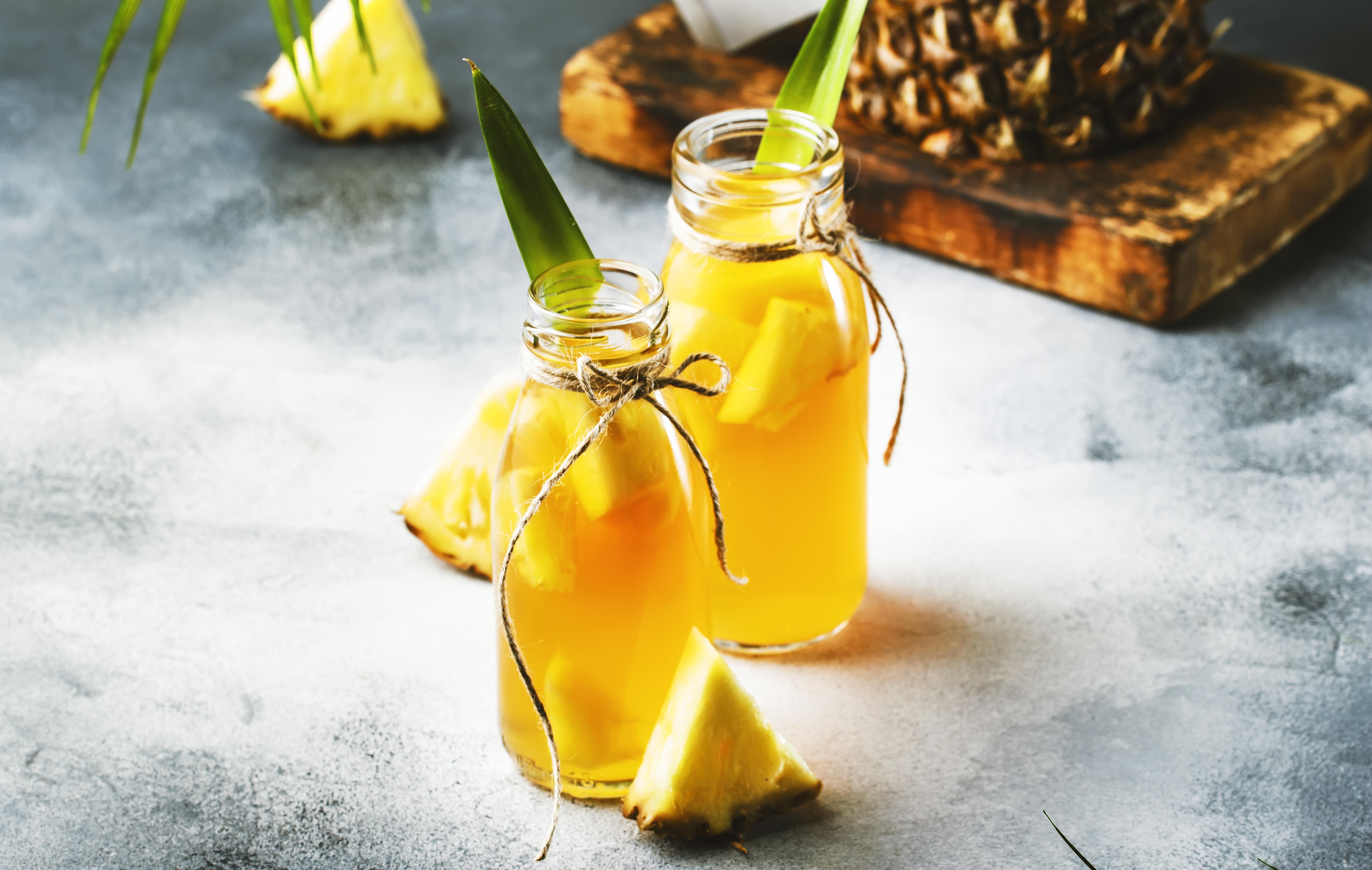
Kombucha is a fermented tea made by culturing tea with a SCOBY (symbiotic culture of bacteria and yeast). It’s loaded with probiotics, organic acids, and antioxidants that help detoxify the gut, improve digestion, and support liver function. Because it contains glucuronic acid, kombucha can aid the body’s natural detoxification processes while also balancing gut flora. Be sure to choose low-sugar, raw kombucha to maximize its probiotic benefits.
8. Pickles (Fermented, Not Vinegar-Based!)
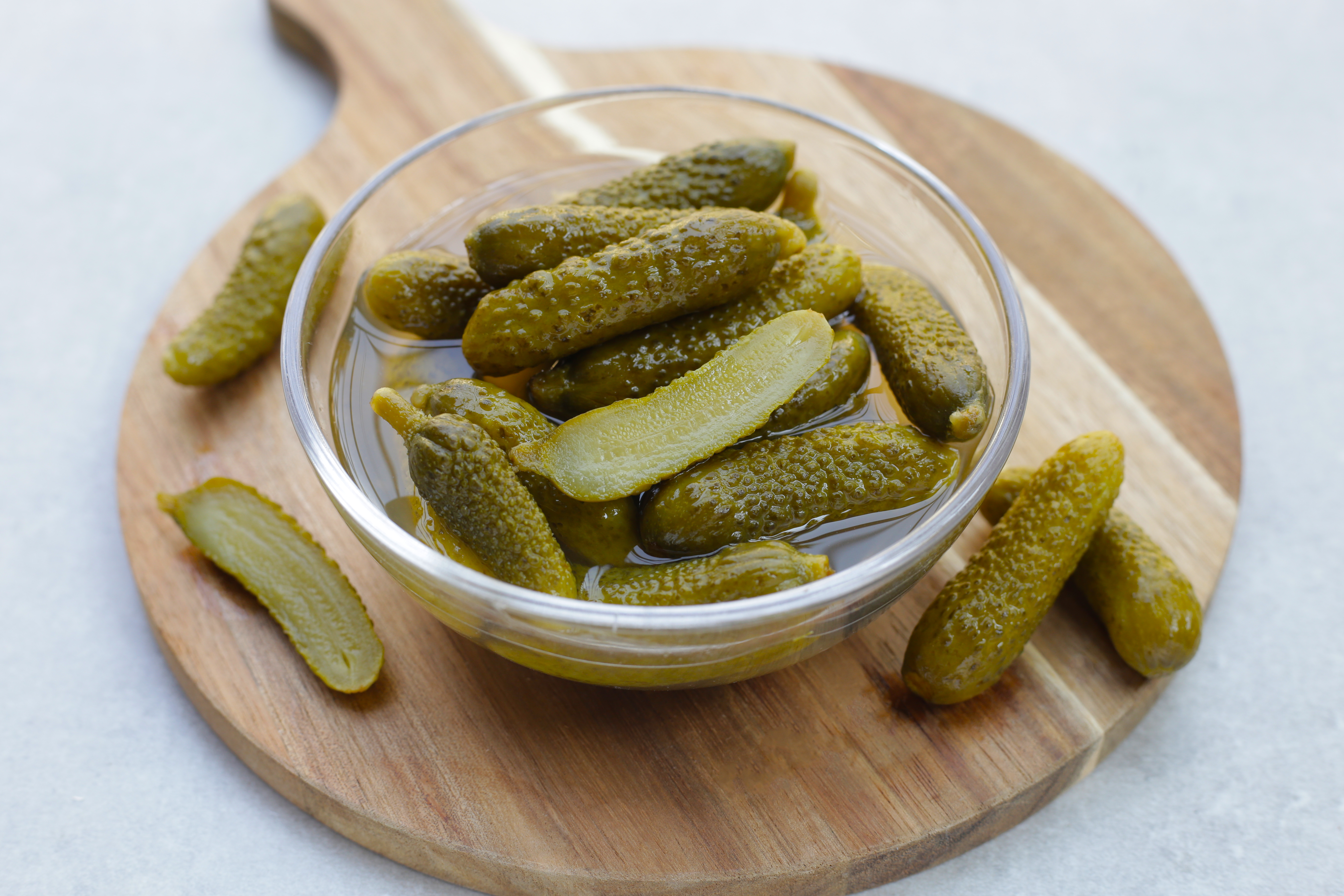
Lacto-fermented pickles are a tangy, crunchy, and highly effective way to add probiotics to your diet. Unlike conventional pickles made with vinegar, fermented pickles undergo a natural fermentation process in a saltwater brine, allowing beneficial bacteria like Lactobacillus to thrive. These probiotics help balance gut flora, aid digestion, and support the immune system. Beyond probiotics, fermented pickles provide electrolytes and enzymes that assist in hydration and nutrient absorption. The fermentation process also increases the bioavailability of certain vitamins, making them even more beneficial. However, not all pickles in the grocery store contain live cultures. To ensure you're getting the gut-boosting benefits, choose raw, unpasteurized pickles from the refrigerated section, as heat processing kills off beneficial bacteria.
9. Yogurt: The Classic Probiotic Staple
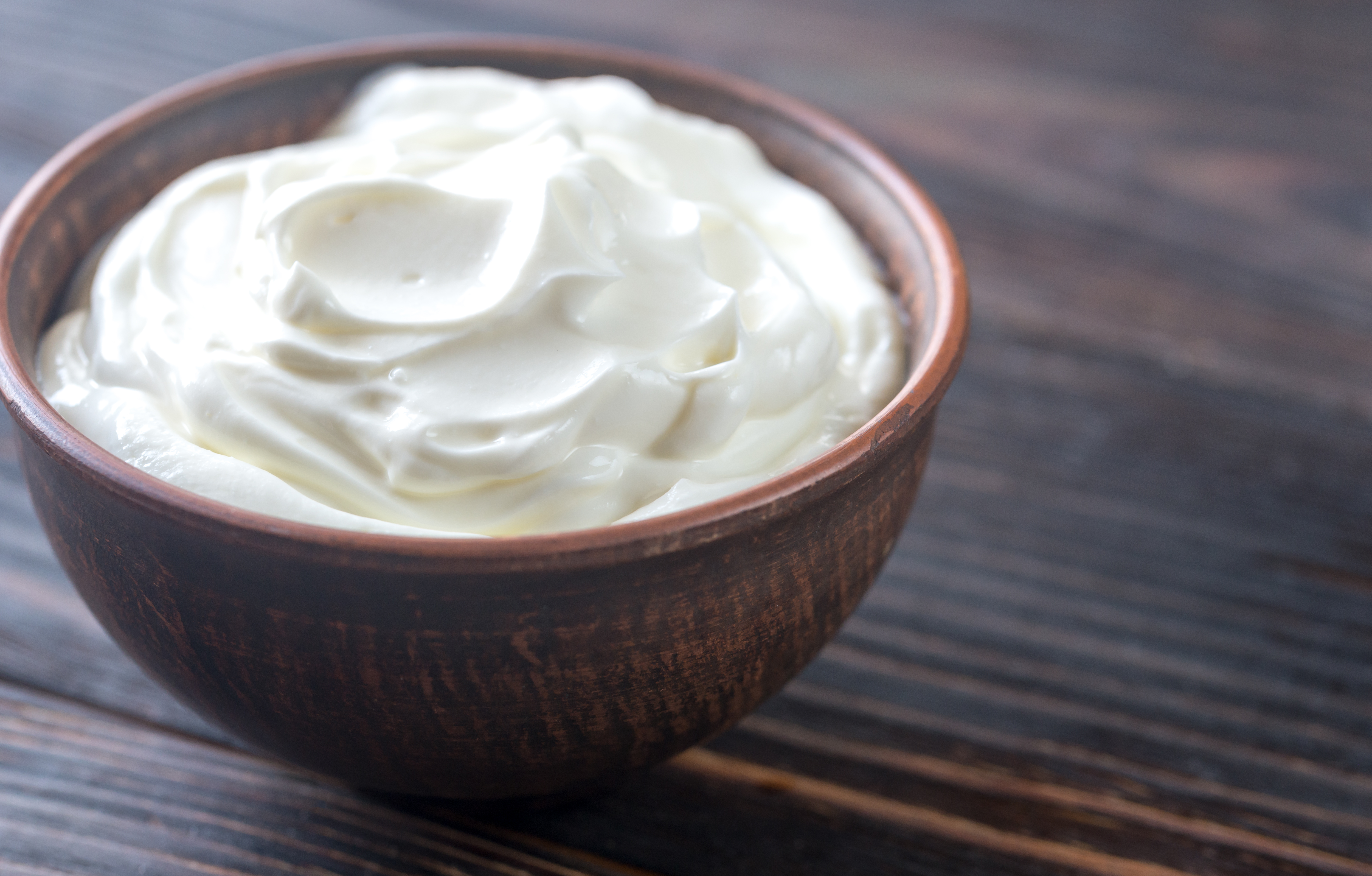
Yogurt is one of the most accessible and widely consumed probiotic foods, offering a simple yet effective way to introduce beneficial bacteria into your diet. The fermentation process creates live and active cultures, including Lactobacillus and Bifidobacterium, which promote gut health, aid digestion, and strengthen the immune system. However, not all yogurts are created equal. Many commercial brands are heavily processed, contain added sugars and artificial flavors, and may lack significant probiotic benefits. The best choices are plain, full-fat, or Greek yogurts with minimal ingredients and clearly labeled live cultures. In addition to probiotics, yogurt is rich in protein, calcium, and B vitamins, making it a nutrient-dense option for breakfast, snacks, or smoothies.
10. Lassi: The Ayurvedic Probiotic Drink
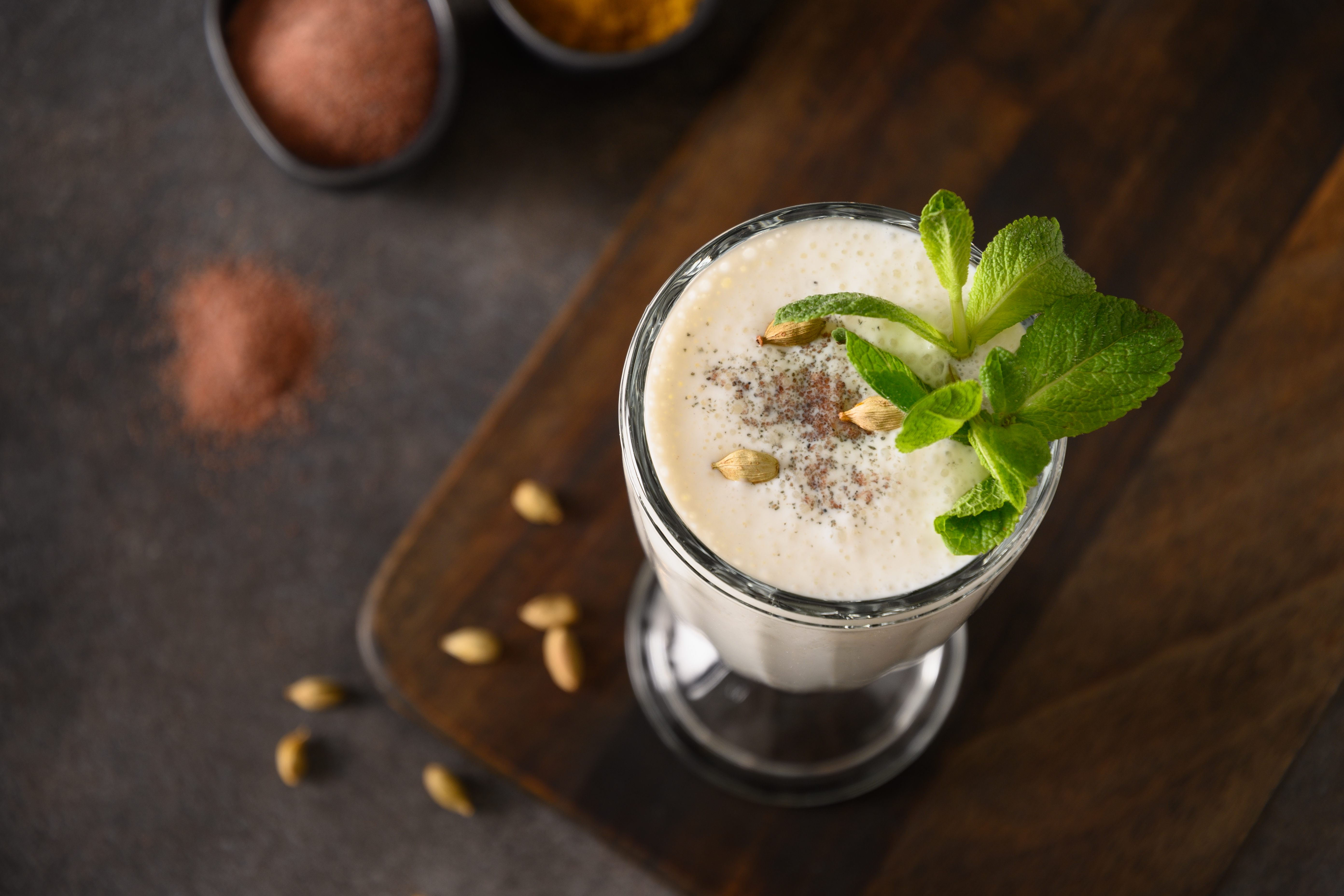
Lassi, a traditional Indian fermented dairy drink, has been cherished for centuries as a digestive aid and gut health booster. Made from blended yogurt, water, and spices, lassi contains live lactobacilli, which help maintain a balanced gut microbiome, promote regularity, and reduce bloating. Unlike processed probiotic drinks that contain added sugars, lassi is naturally nourishing. It’s often infused with cumin, cardamom, ginger, or mint, which further enhance its anti-inflammatory and digestive benefits. Ginger, in particular, can soothe the stomach, support enzyme production, and alleviate nausea. Lassi is traditionally consumed with meals to aid digestion and prevent heaviness after eating. It’s available in both sweet and savory variations, making it a versatile probiotic drink. Those who are lactose-intolerant can opt for dairy-free lassi alternatives made with coconut or almond yogurt.
11. Kvass: The Eastern European Gut Tonic
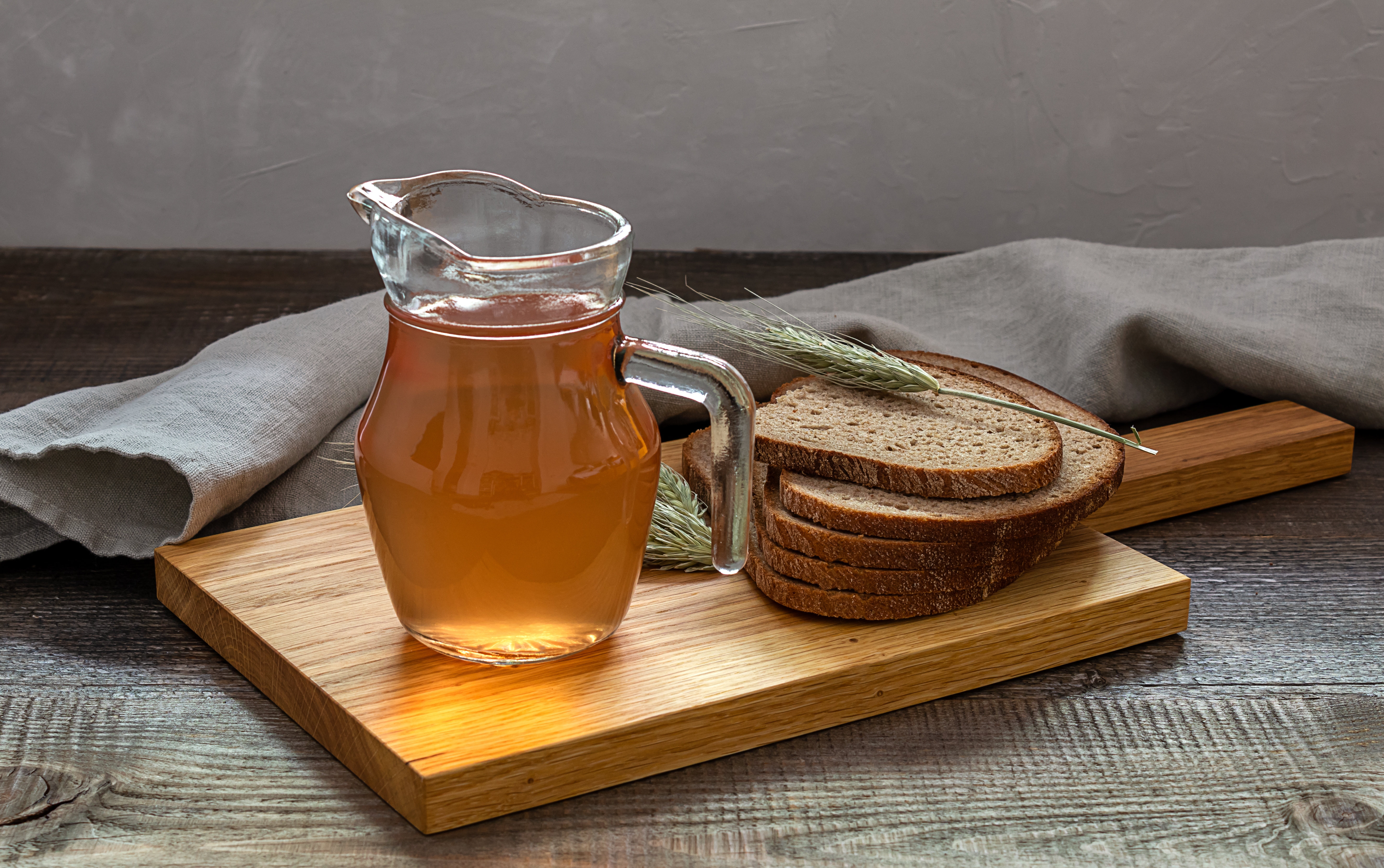
Kvass is an ancient Eastern European fermented beverage known for its bold, earthy flavor and impressive gut-healing benefits. Traditionally made from fermented rye bread or beets, kvass contains a unique blend of probiotics, enzymes, and B vitamins that support digestive health and detoxification. Beet kvass, in particular, is rich in antioxidants and nitrates, which help improve circulation, liver function, and cellular oxygenation. The fermentation process enhances its ability to balance gut bacteria, reduce inflammation, and aid digestion. Kvass has a slightly tangy, sour taste that can take some getting used to, but its detoxifying and alkalizing effects make it well worth incorporating into your routine. Drinking a small glass before meals can stimulate stomach acid production, making digestion more efficient.
12. Coconut Kefir: A Dairy-Free Probiotic Alternative
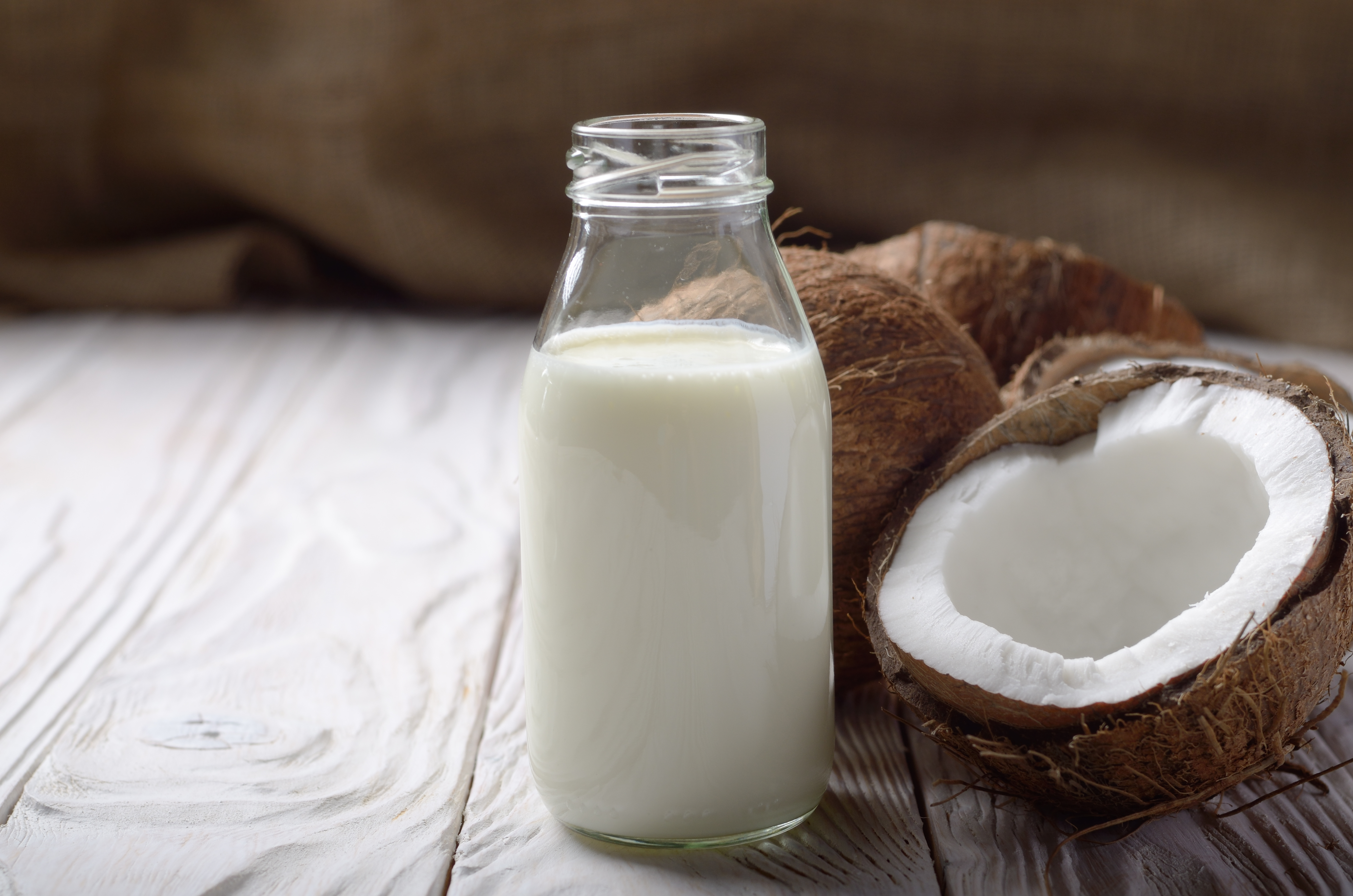
Coconut kefir is a refreshing, dairy-free probiotic drink made by fermenting coconut water with kefir grains. Unlike traditional milk kefir, coconut kefir is completely plant-based, making it an ideal choice for vegans and those with lactose intolerance. What makes coconut kefir stand out is its high concentration of probiotics, electrolytes, and enzymes. The natural fermentation process enhances its ability to support digestion, reduce bloating, and restore gut balance. Because it is also rich in potassium and magnesium, coconut kefir helps replenish hydration levels and regulate muscle function. This tangy, lightly effervescent drink can be enjoyed on its own, mixed into smoothies, or used as a base for salad dressings. Regular consumption of coconut kefir can strengthen the gut microbiome, improve skin health, and boost overall energy levels.
13. Doenjang: The Korean Fermented Soybean Paste for Gut & Heart Health
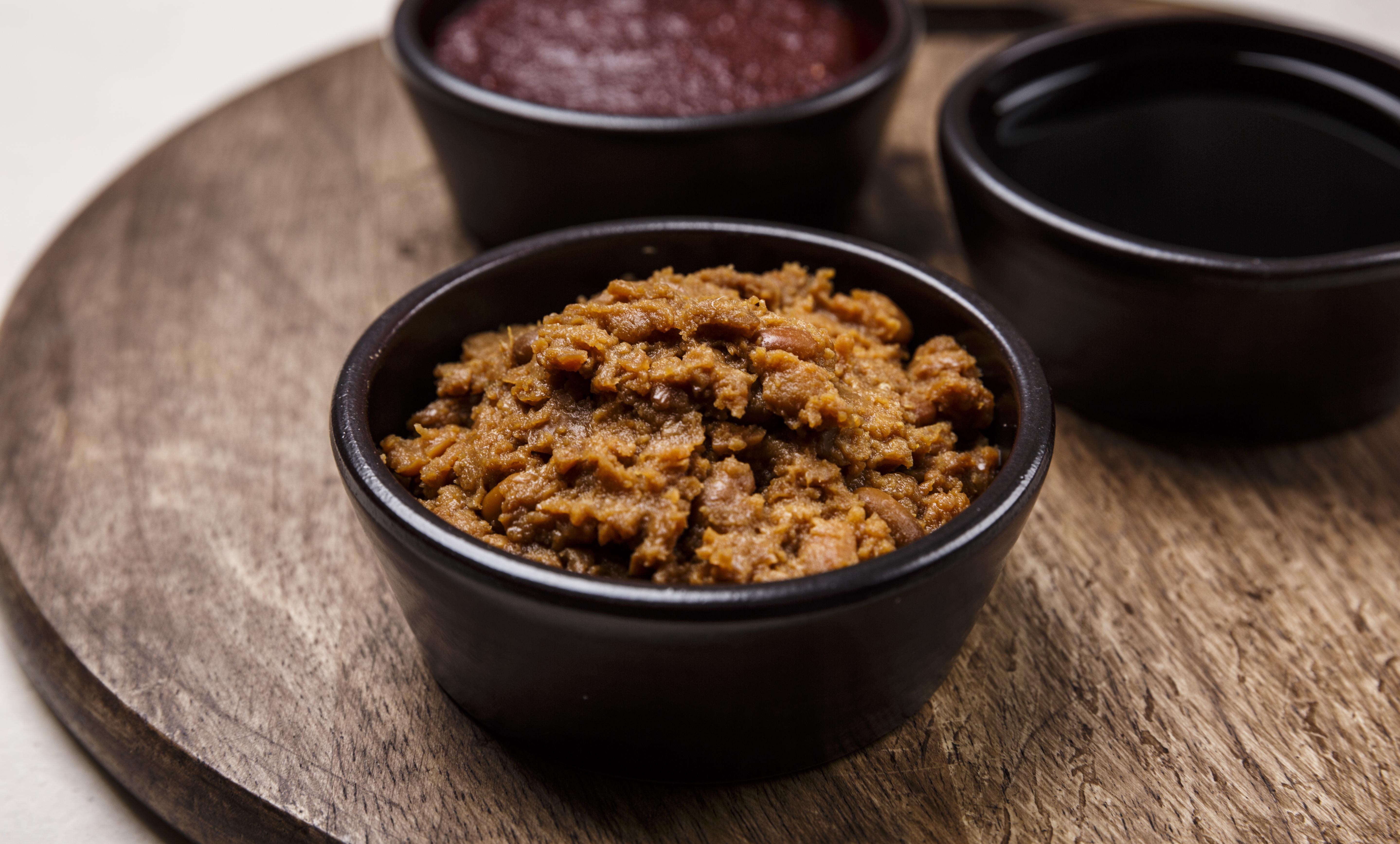
A cousin to miso, doenjang is a traditional Korean fermented soybean paste that boasts an even richer probiotic profile. It’s made by fermenting soybeans with salt and water for months, sometimes years, allowing beneficial bacteria to flourish. Doenjang is packed with Bacillus subtilis, a probiotic strain that enhances digestion, boosts immune function, and even supports cardiovascular health. Unlike many processed soy products, the fermentation process of doenjang helps reduce anti-nutrients, making minerals like magnesium, zinc, and iron more bioavailable. Try it in soups, marinades, or mixed into a warm bowl of rice for a savory, umami-rich gut-boosting addition.
14. Fermented Black Garlic: The Gut-Friendly Super Antioxidant
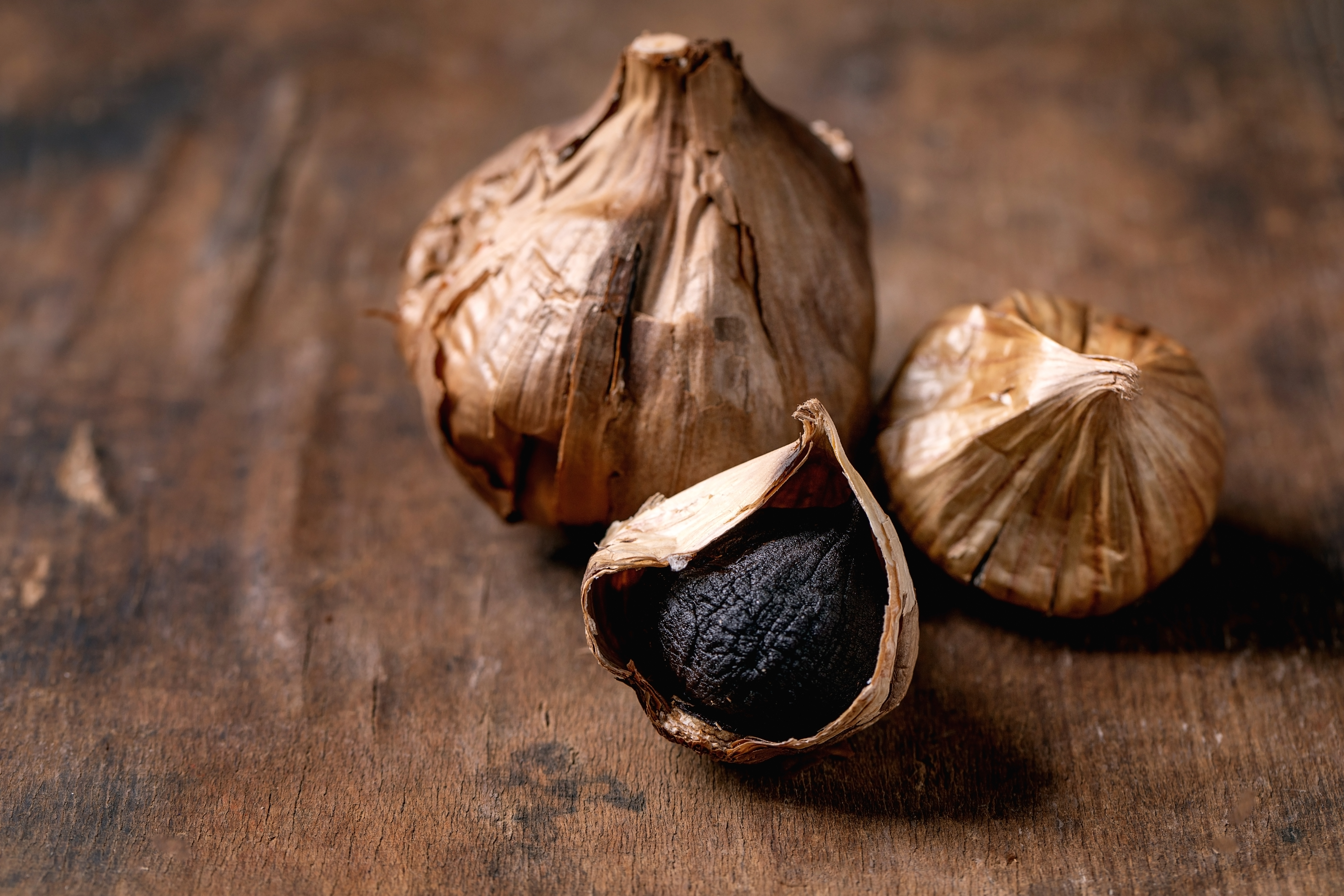
Black garlic is regular garlic that has undergone a slow fermentation process, transforming it into a soft, sweet, and tangy superfood. This process amplifies its antioxidant levels and enhances S-allyl cysteine, a compound that supports heart health and reduces inflammation. While black garlic isn’t traditionally thought of as a probiotic, its unique fermentation process enhances gut bacteria diversity and supports overall microbiome balance. It’s also easier to digest than raw garlic, making it a gentler option for those with sensitive stomachs. Add it to salad dressings, sauces, or eat it straight for a powerful metabolic and immune boost.
15. Smreka: The Forgotten Fermented Juniper Berry Drink
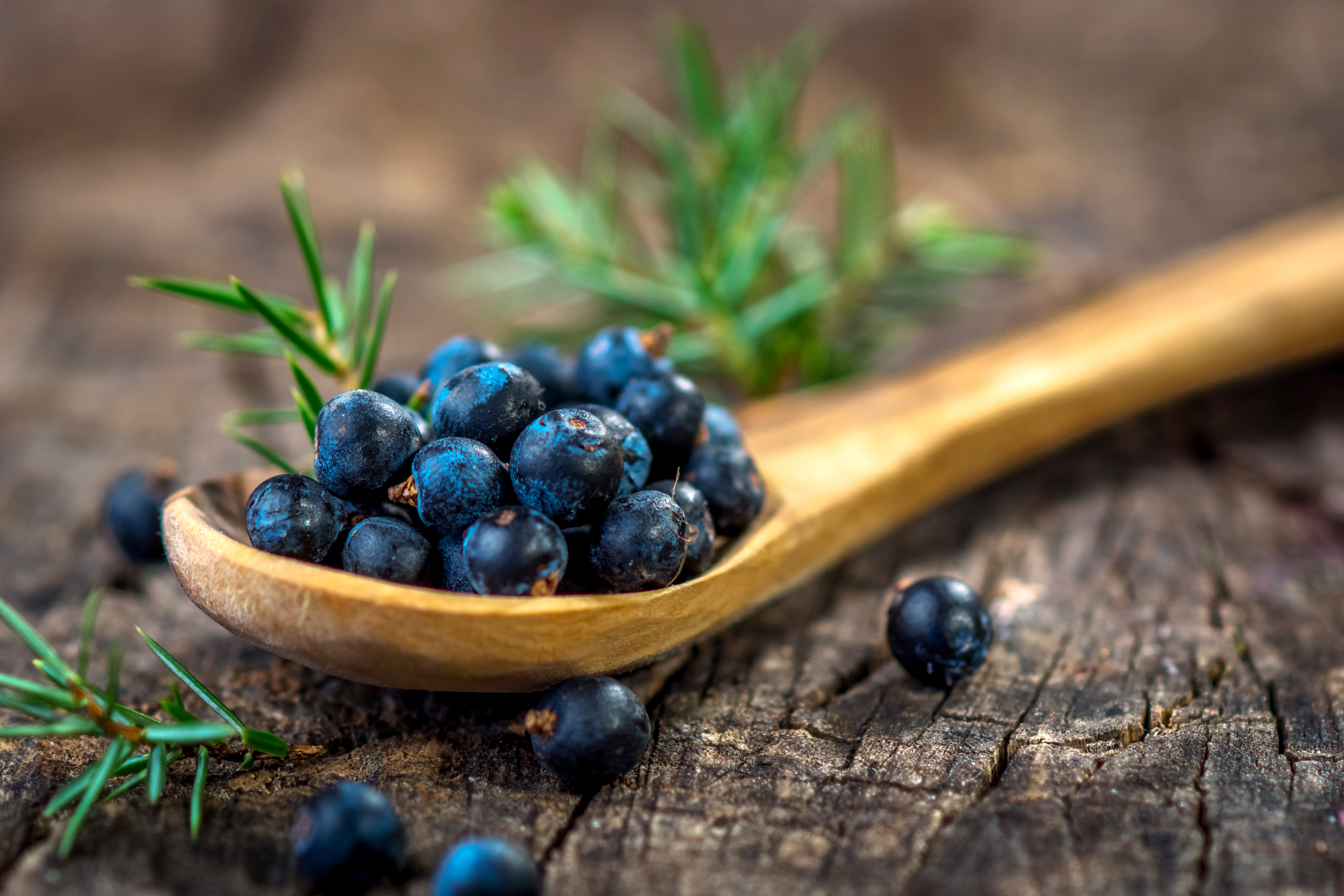
Originating from the Balkans, smreka is a unique fermented juniper berry drink that’s making a comeback due to its gut-healing properties. Juniper berries are packed with antimicrobial and anti-inflammatory compounds, and the fermentation process enhances their bioavailability. Smreka acts as a natural digestive aid, supporting gut flora while helping to detoxify the liver and kidneys. Traditionally, it’s made by fermenting juniper berries in water for several weeks, creating a tart, slightly fizzy beverage loaded with beneficial bacteria. It’s a refreshing, low-sugar alternative to kombucha and can be enjoyed as a daily probiotic tonic.
16. Fermented Tofu: The Gut-Healing Vegan Protein
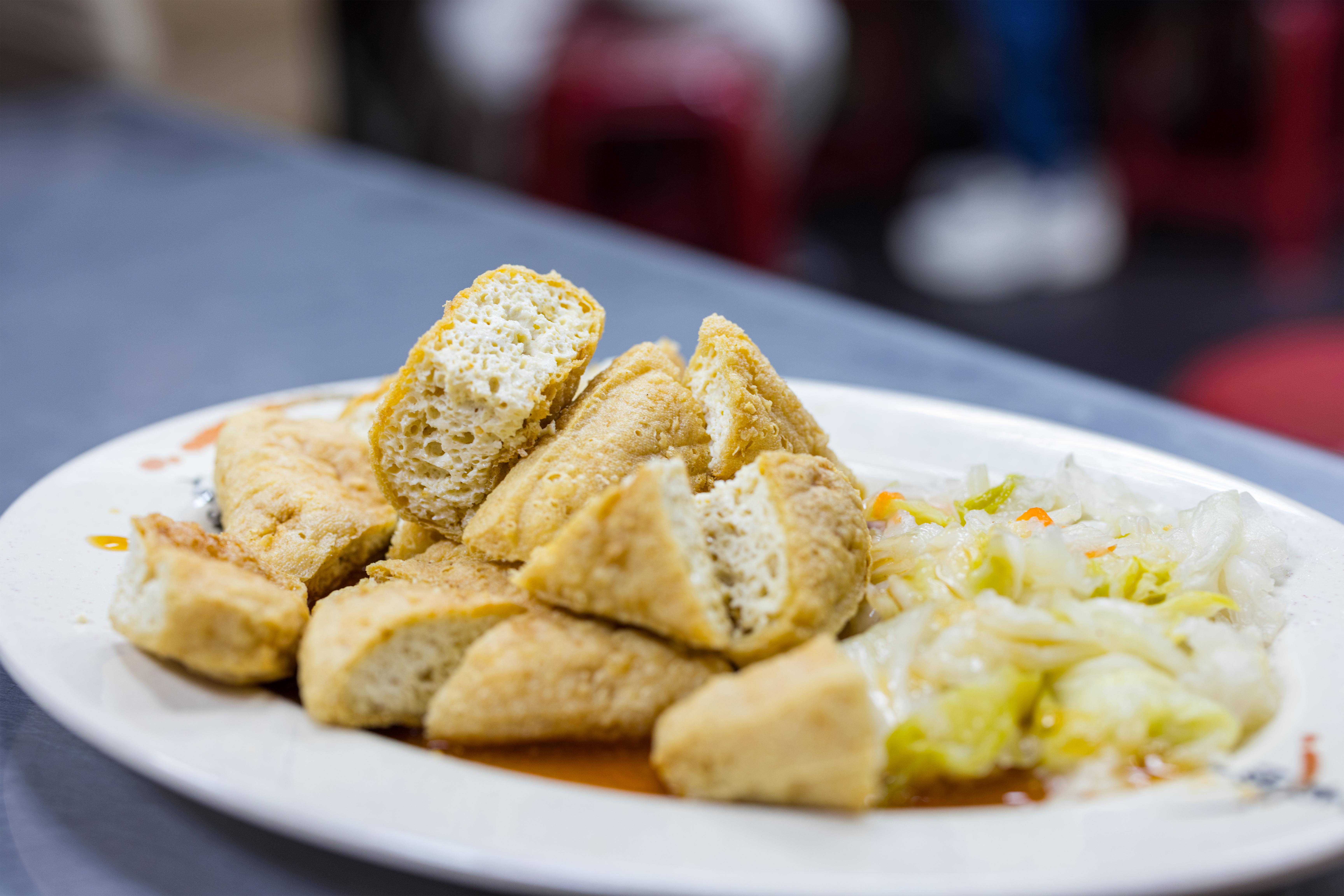
For those seeking a plant-based probiotic powerhouse, fermented tofu (also known as stinky tofu or sufu) is an excellent option. Popular in Chinese and Southeast Asian cuisines, this fermented soybean curd is aged with mold cultures, which pre-digests the proteins and enhances its probiotic content. Unlike regular tofu, fermented tofu is rich in enzymes and beneficial bacteria that aid digestion and improve nutrient absorption. It’s a great choice for those looking to improve gut health while getting a high-protein, low-carb fermented food. Use it as a topping for soups, mix it into sauces, or spread it on toast for a savory, cheese-like alternative.
17. Gari: The Fermented Ginger Pickle That Boosts Digestion
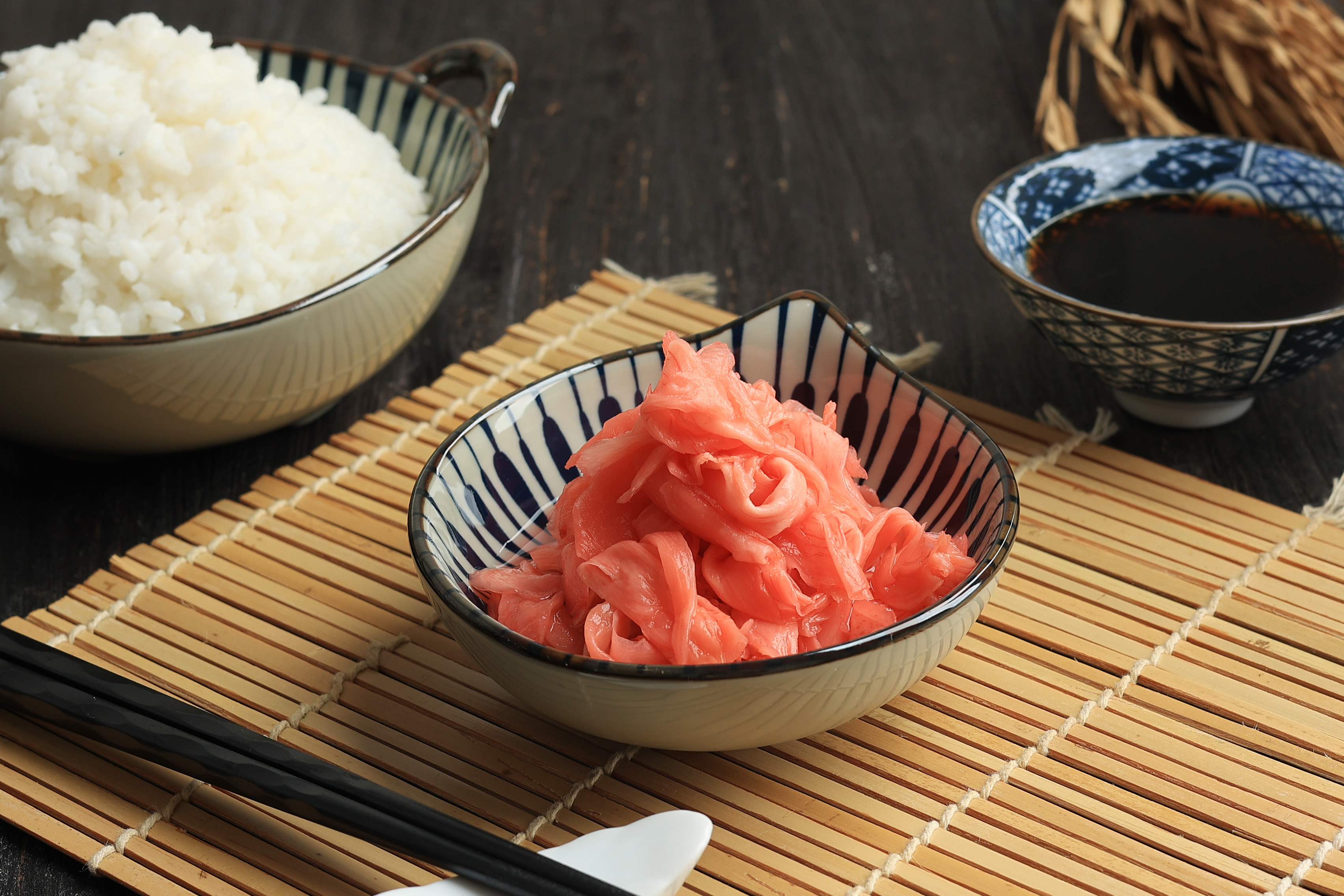
If you’ve ever eaten sushi, you’ve probably encountered gari, the thinly sliced fermented pickled ginger that refreshes the palate. While many commercial versions are pickled in vinegar and sugar, traditionally fermented gari undergoes a natural lacto-fermentation process, enhancing its probiotic benefits. Ginger itself is already a powerful digestive aid, stimulating enzyme production and reducing bloating, but fermentation takes it to the next level by introducing beneficial bacteria. Enjoying a small serving of naturally fermented gari before meals can improve gut motility, support digestion, and reduce nausea.
18. Nước Mắm: Vietnam’s Fermented Fish Sauce for a Healthy Gut
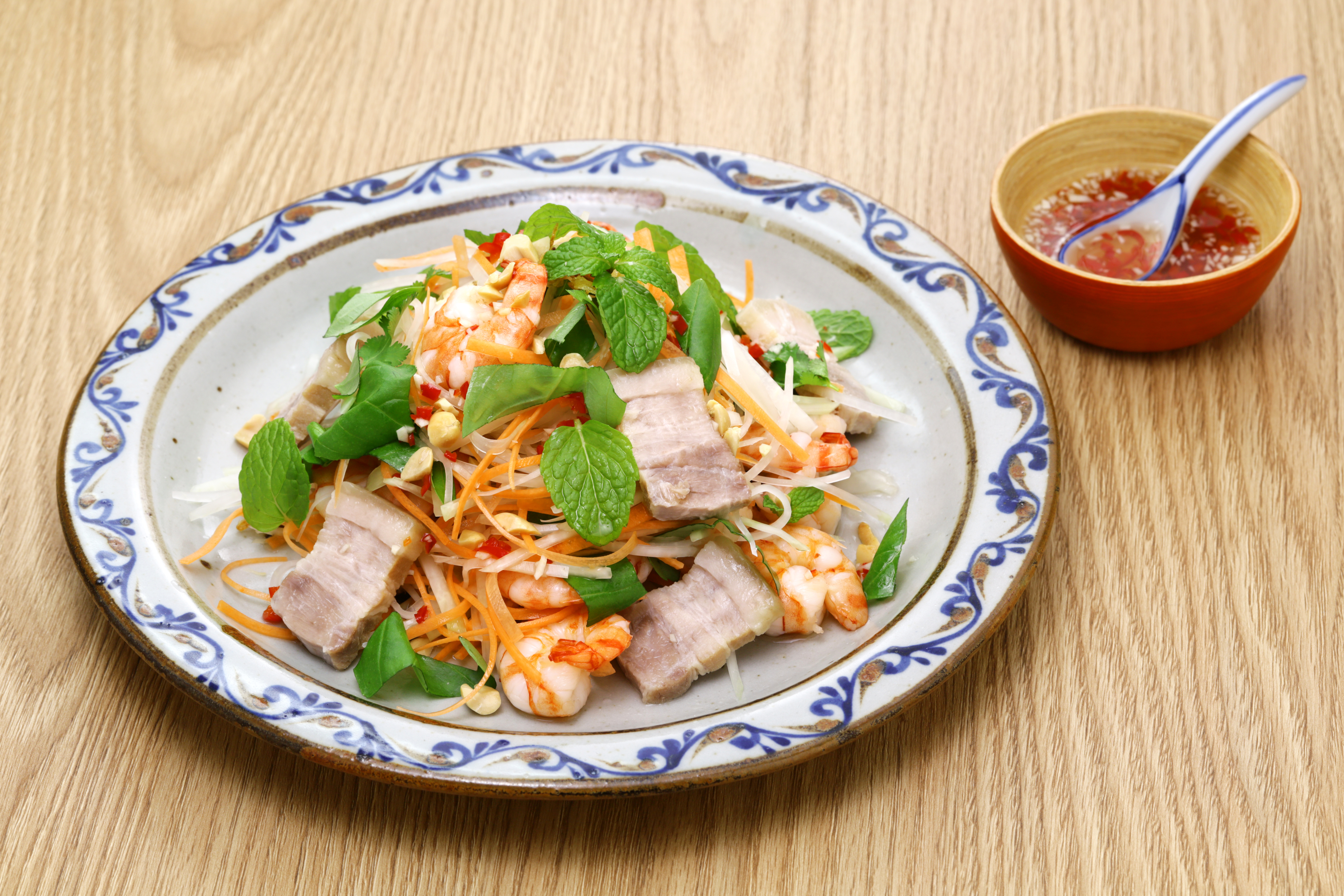
Vietnamese nước mắm, or fermented fish sauce, is an umami-rich staple packed with gut-friendly bacteria. Unlike store-bought versions filled with additives, traditionally fermented fish sauce is made by fermenting fresh fish with salt for months or even years, allowing natural lactobacilli to thrive. This results in a potent probiotic liquid that’s high in essential amino acids and minerals like iodine and phosphorus. While fish sauce is often used as a seasoning, its fermentation process also makes it easier to digest and beneficial for gut microbiome balance. Drizzle it over vegetables, use it in marinades, or mix it into dressings for a probiotic-rich flavor boost.
19. Burong Mangga: The Probiotic Green Mango Ferment
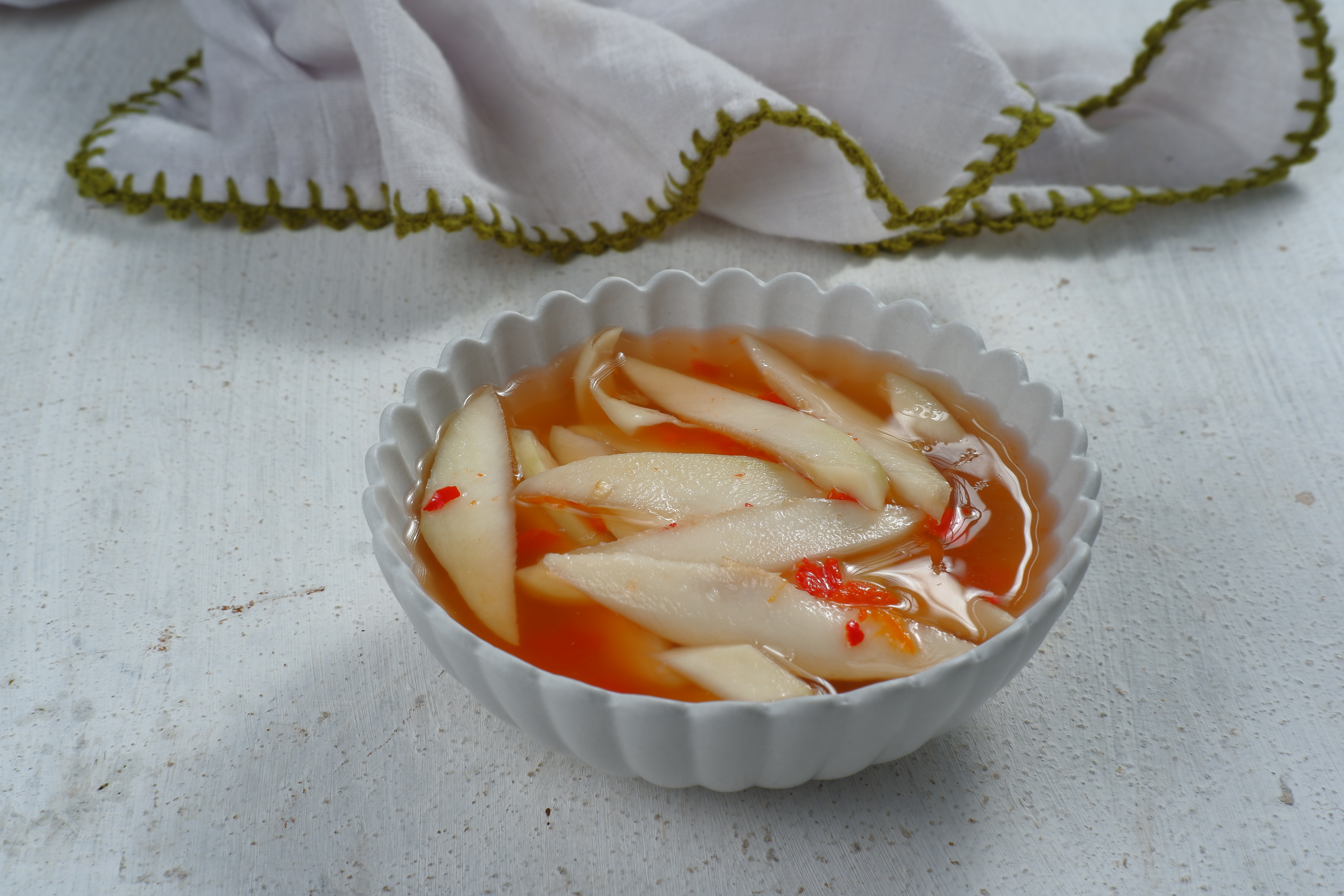
Burong mangga is a traditional Filipino dish made from fermenting green mangoes in saltwater brine, creating a crunchy, tangy, probiotic-rich treat. This unique fermented fruit is loaded with Lactobacillus strains, making it an excellent addition to any gut-healing diet. Green mangoes are naturally rich in prebiotic fiber, meaning they feed good gut bacteria while the fermentation process enhances probiotic content. The result? A gut-boosting super-snack that helps reduce bloating, improve digestion, and regulate blood sugar. Enjoy burong mangga as a refreshing side dish, mix it into salads, or pair it with grilled meats.
20. Togwa: Tanzania’s Fermented Millet & Sorghum Drink

Togwa is a traditional fermented porridge-like drink from East Africa, made from millet and sorghum grains. The fermentation process increases its probiotic content, making it a naturally rich source of beneficial lactobacilli and prebiotic fiber. Togwa is particularly powerful because millet and sorghum are naturally gluten-free and rich in resistant starch, which feeds good gut bacteria and supports digestion. This makes it a perfect choice for people with gluten sensitivities or those looking to add more gut-friendly grains to their diet. It’s slightly tangy, refreshing, and can be enjoyed cold or warm for a nourishing, probiotic-rich meal replacement.
21. Fermented Chili Sauce: A Spicy Probiotic Punch
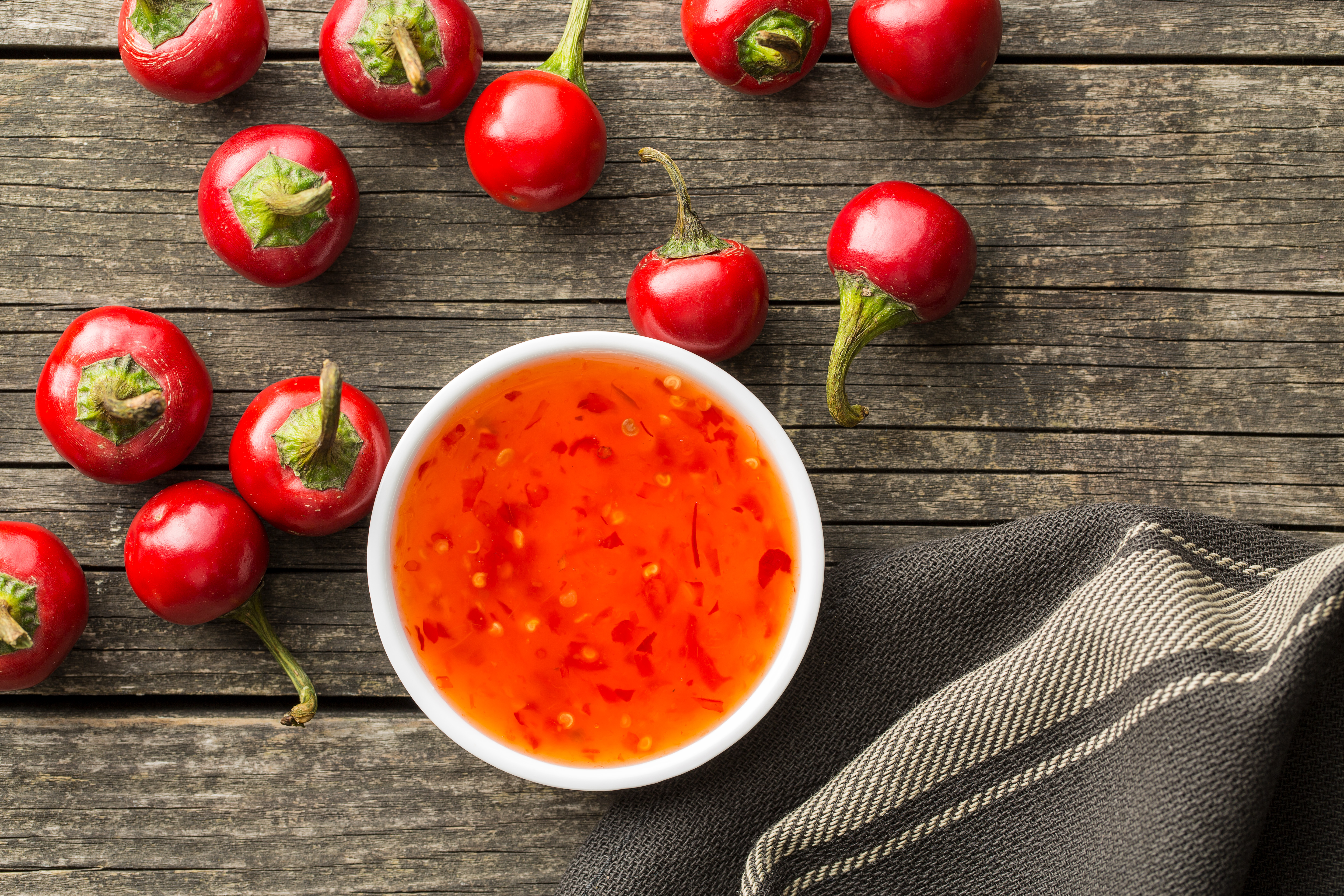
If you love hot sauce, fermented chili sauce is a game-changer. Unlike vinegar-based hot sauces, naturally fermented chili sauces go through a lacto-fermentation process that creates a complex, tangy, and probiotic-rich condiment. Chili peppers are naturally high in capsaicin, which boosts metabolism and reduces inflammation, while fermentation adds gut-friendly lactobacilli. This fiery ferment supports gut health, immunity, and digestion while providing the added benefit of heat-induced endorphin release. Look for raw, unpasteurized versions, or try making your own by fermenting chili peppers with garlic, salt, and water for 1-2 weeks.
22. Plum Jangajji: The Fermented Korean Pickled Plum
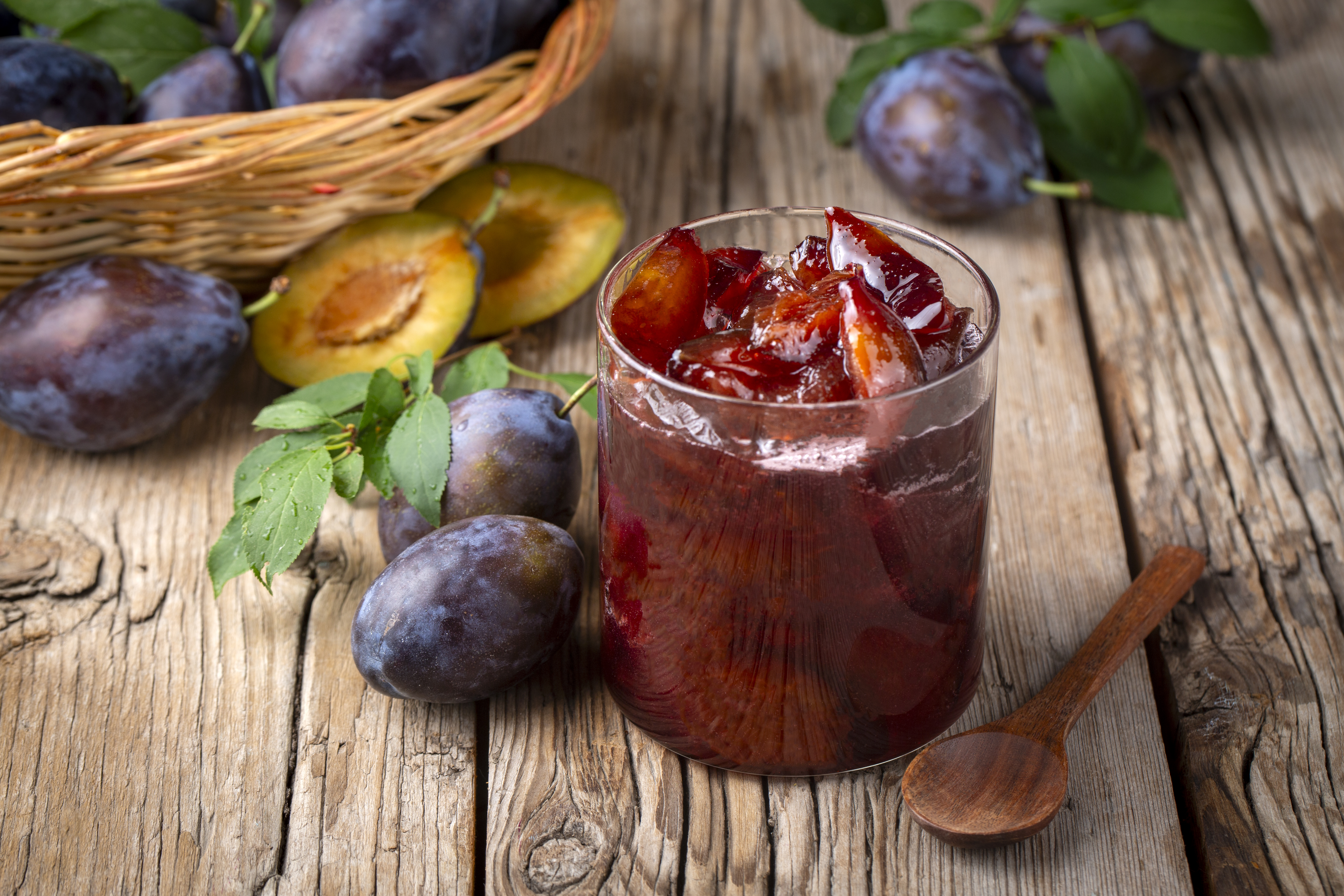
Plum jangajji is a lesser-known Korean fermented fruit that packs a serious probiotic punch. Made by fermenting unripe plums in soy sauce or brine, this tart, umami-rich treat is high in polyphenols, digestive enzymes, and probiotics that support gut health and digestion. Plums are naturally high in fiber and antioxidants, making their fermented version even more beneficial for gut microbiota balance and inflammation reduction. Enjoy it as a tangy topping for rice dishes, a salad enhancer, or even eaten straight as a probiotic-rich snack.
Unlock the Power of Fermented Foods for Instant Gut Health

Incorporating fermented foods into your diet isn’t just a trend—it’s a science-backed strategy for achieving optimal gut health and overall well-being. These foods work quickly to restore balance to your microbiome, improve digestion, reduce inflammation, and even enhance mental clarity. Whether you start small by adding a spoonful of sauerkraut to your plate, sipping on kefir, or swapping sugary drinks for kombucha, every step counts. The beauty of fermented foods is their versatility—they can be enjoyed in different forms, textures, and flavors to suit every palate. Your gut is at the core of your health, influencing everything from immunity to mood to energy levels. By consistently incorporating these 22 probiotic-rich foods, you’re investing in a healthier, stronger, and more resilient body. So why wait? Take the first step today—embrace fermented foods, nourish your microbiome, and feel the transformation from within.